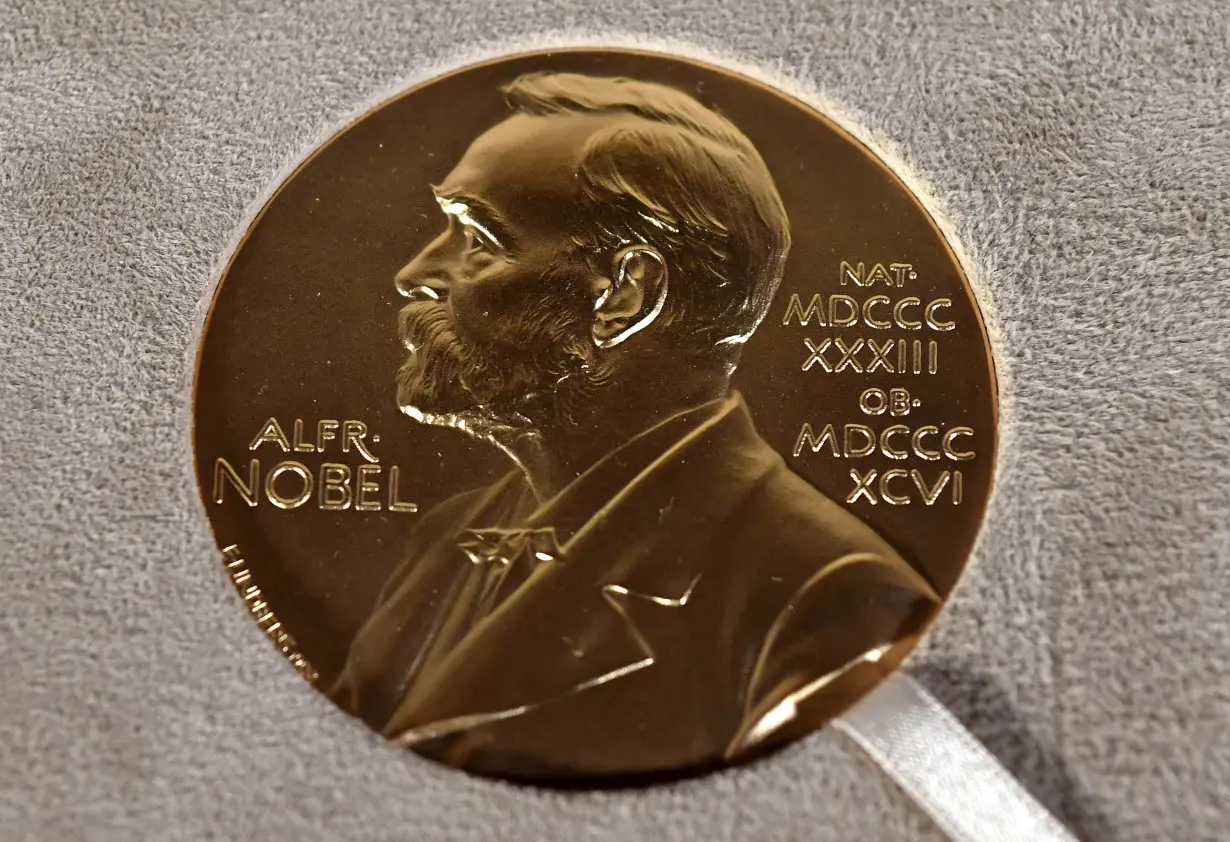STOCKHOLM (AP) — Claudia Goldin, a Harvard University professor, was awarded the Nobel economics prize on Monday for research that helps explain why women around the world are less likely than men to work and to earn less money when they do.
Fittingly, the announcement marked a small step toward closing a gender gap among Nobel laureates in economics: Out of 93 economics winners, Goldin is just the third woman to be awarded the prize and the first woman to be the sole winner in any year.
Her award follows Nobel honors this year in medicine, physics, chemistry, literature and peace that were announced last week. And it follows last year's three winners in economics: Former Federal Reserve Chair Ben Bernanke, Douglas W. Diamond and Philip Dybvig for their research into bank failures that helped shape America’s aggressive response to the 2007-2008 financial crisis.
WHAT WORK WON GOLDIN THE NOBEL IN ECONOMICS?
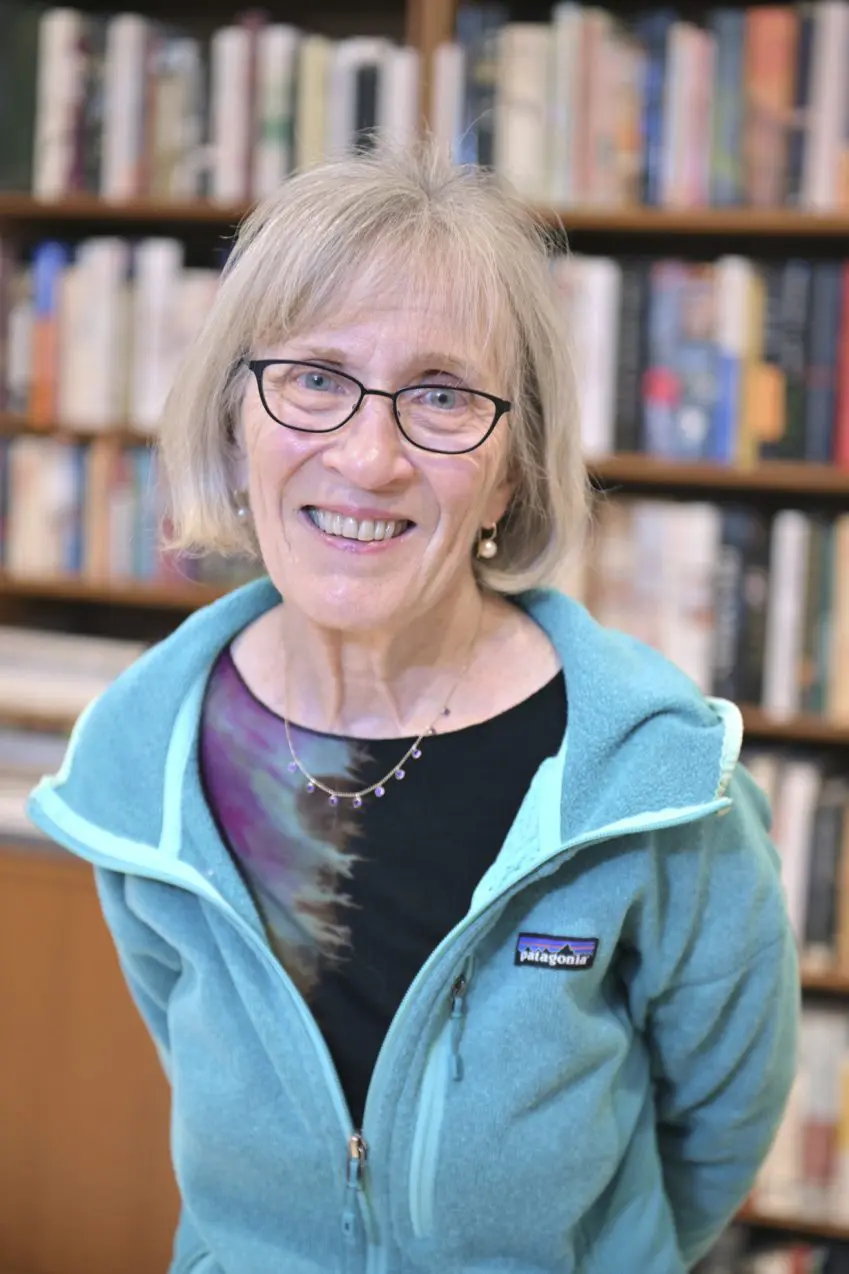
Only about half the world’s women have paid jobs, in contrast to 80% of men. Economists regard the gap as a wasted opportunity: Jobs have often failed to go to the most qualified people because women either weren’t competing for work or weren't being properly considered.
In addition, a persistent pay gap — women in advanced economies earn, on average, about 13% less than men — discourages women from pursuing jobs or continuing their education to qualify for more advanced job opportunities.
Goldin, 77, explored the reasons behind such disparities. Often, she found, they resulted from decisions that women made about their prospects in the job market and about their families' personal circumstances. Some women underestimated their employment opportunities. Others felt overwhelmed by responsibilities at home.
“Women are now more educated than men," Goldin noted in an interview with The Associated Press. "They graduate from college at much higher rates than men. They do better in high school than men do. So why are there these differences?
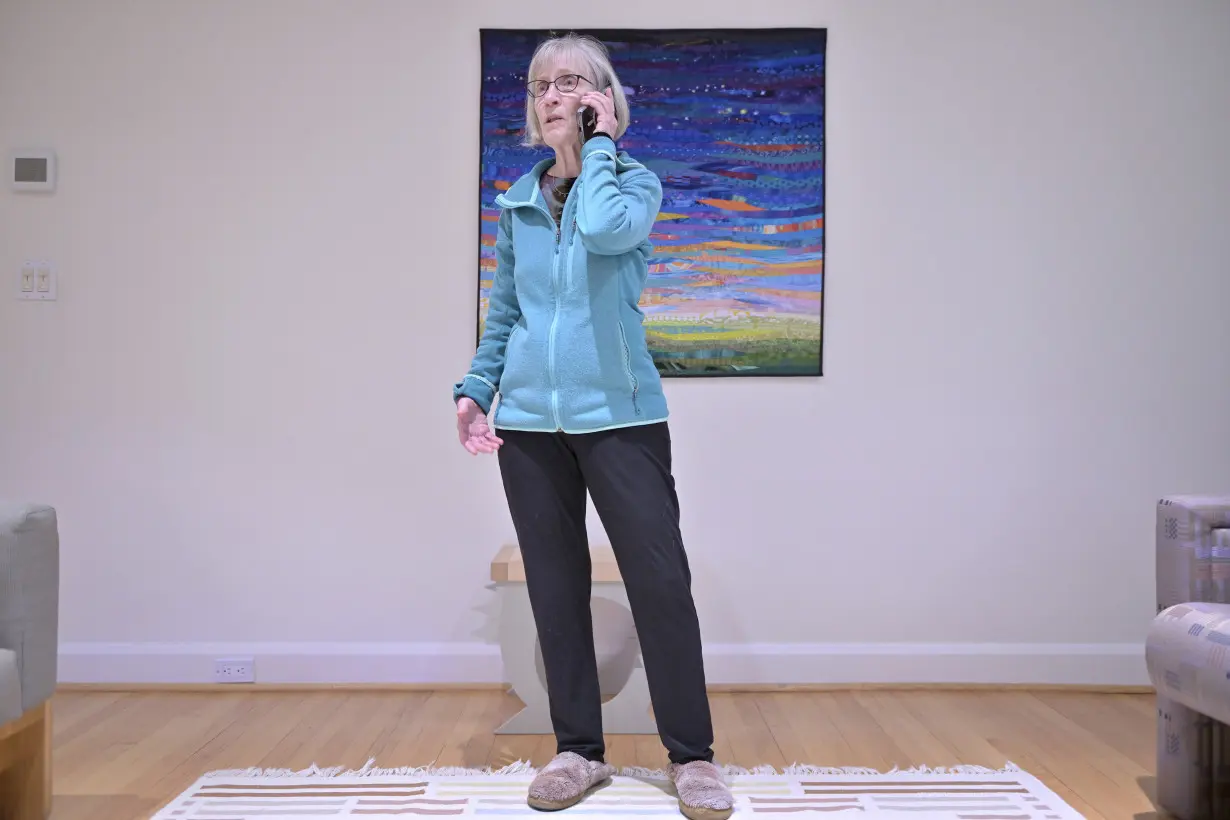
“And we realize that these differences, although some are found within the labor market, are really reflections of what happens within individuals' homes, and they’re an interaction between what happens in the home and what happens in the labor market.”
HOW DID GOLDIN CONDUCT HER RESEARCH?
To understand what was happening, Goldin pored through 200 years of labor market data. The task required a laborious process of sleuthing: Women’s jobs frequently didn't appear in historical records. Women who worked on farms alongside their husbands or who labored at home in cottage industries such as weaving, for example, often went uncounted.
Goldin compiled new databases using such resources as industrial statistics and historical surveys on how people used their time. She discovered that official records dramatically undercounted how much work women were doing.
WHAT DID HER WORK BRING TO LIGHT?
Correcting the record revealed some striking surprises. During the Industrial Revolution, as the U.S. and European economies rapidly expanded and shifted from farms to factories, women’s share of the workforce actually declined. Before Goldin's work advanced public understanding, researchers, unfamiliar with older data, generally assumed that growing economies drew more women into the job market.
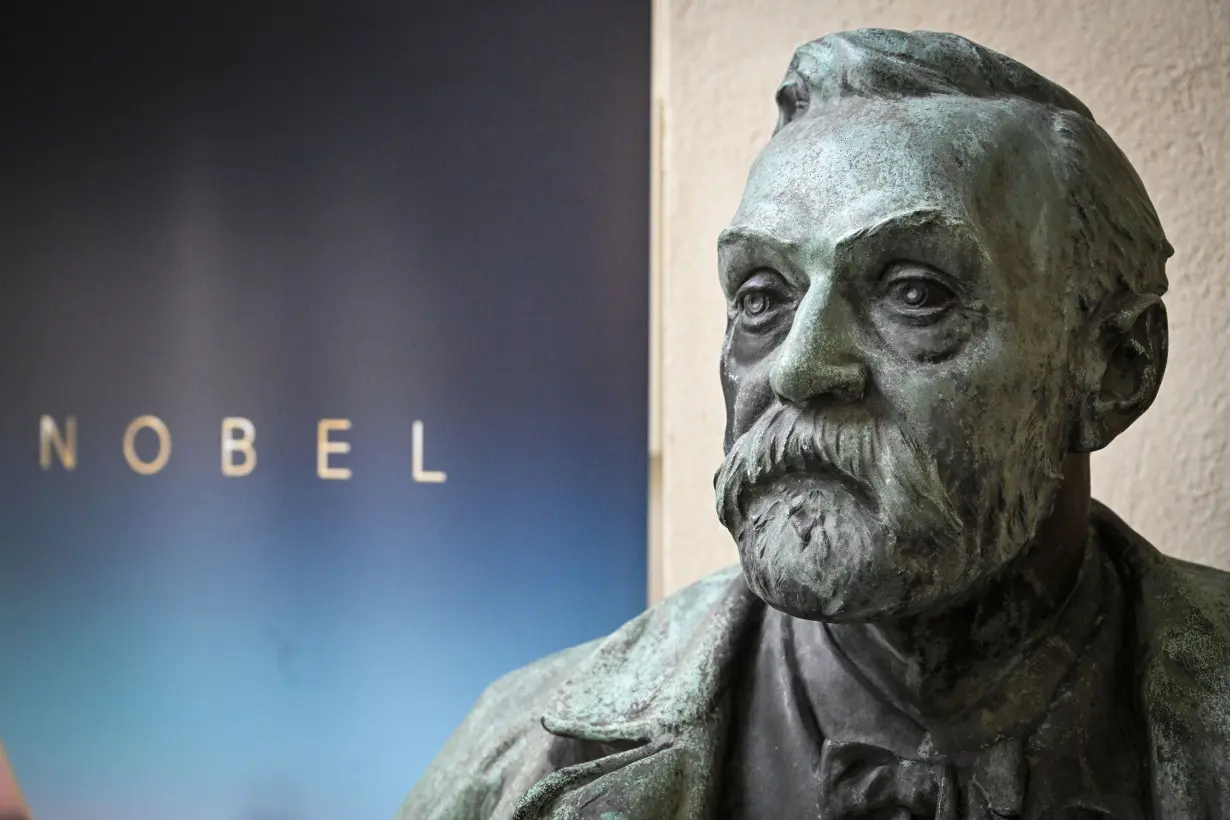
Progress in expanding female employment was slowed, in part, by women’s own expectations and the experiences they had witnessed. Often, for example, they watched their own mothers stay home even after their children had grown up.
But their expectations could be "severely off the mark,’’ and they led some women to cut short their education because they didn’t expect long careers, the Nobel committee said in an essay on Goldin’s work. Many women who came of age in the 1950s, for instance, did not foresee the growing opportunities of the 1960s and 1970s. Women who grew up later did, and more of them pursued higher education.
Goldin also discovered that marriage proved to be a more serious barrier to women's employment than had been previously thought. At the start of the 20th century, only 5% of married women worked, versus 20% of all women. Until the 1930s, laws often barred married women from continuing their employment as teachers or office workers.
Those laws were eventually repealed. And the birth-control pill, introduced in 1950, over time allowed women to make long-term plans for their education, careers and families. The proportion of U.S. women who either had a job or were looking for one rose steadily from the 1950s until the mid-1990s, when the figure plateaued.
WHAT EXPLAINS THE CONTINUING PAY GAP BETWEEN MEN AND WOMEN?
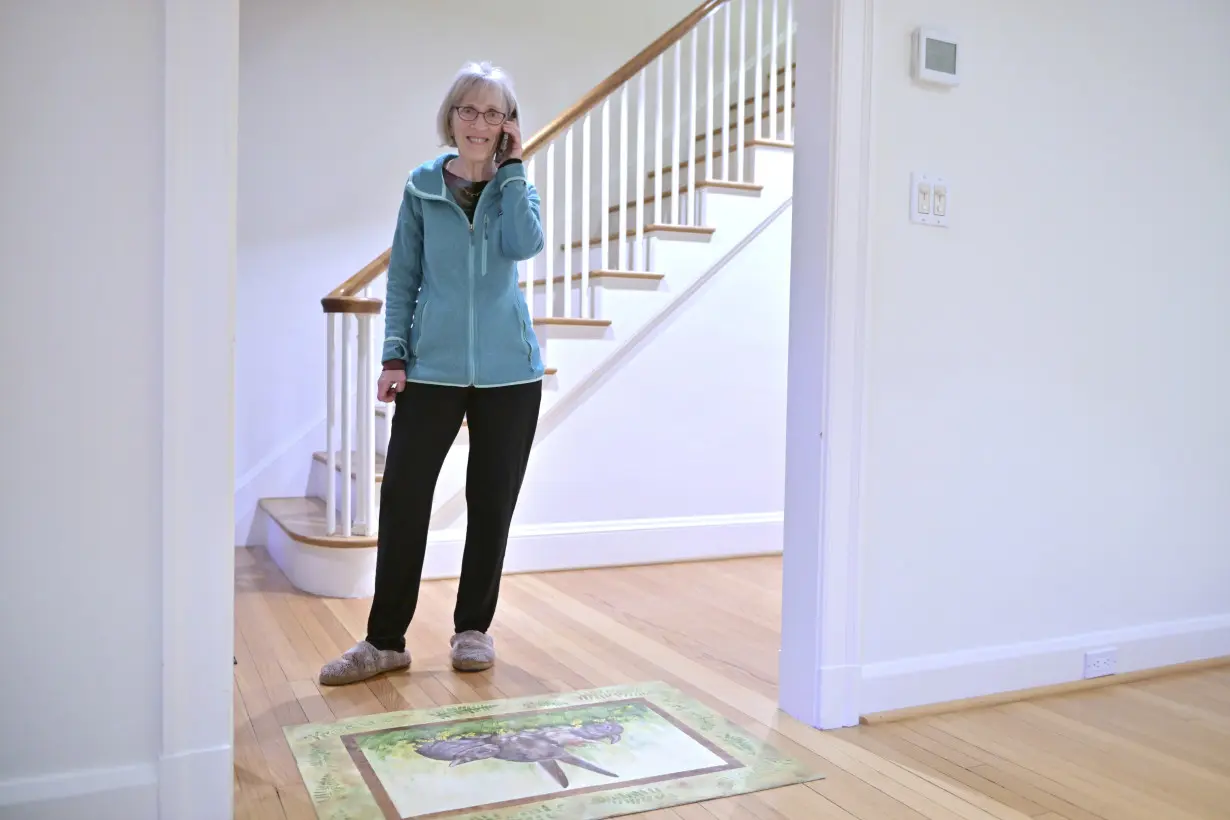
The earnings disparity between men and women narrowed as more women went to work. But it didn’t go away.
Goldin compiled two centuries of data on the gender pay disparity. She found that the earnings gap narrowed during the first half of the 19th century and then from roughly 1890 to 1930 as companies began to need many more administrative and clerical workers.
But progress in reducing the pay gap stalled from about 1930 to 1980 even though more women were working and attending college.
Goldin identified the key culprit: Parenthood. Once a woman has a child, her pay tends to drop and subsequently doesn't grow as fast as it does for men, even among women and men with similar educational and professional backgrounds.

Modern pay systems tend to reward employees with long, uninterrupted careers. And companies often demand that employees be available at all times and flexible about working late and on weekends. That can be difficult for women who typically bear more childcare responsibilities than men do.
Speaking to the AP, Goldin expressed dismay that women are less likely to work in America than in France, Canada or Japan — a reversal from the 1990s when U.S. women enjoyed the world's highest labor force participation rates.
“When I look at the numbers, I think something has happened in America,'' she said. “We have to ask why that’s the case ... We have to step back and ask questions about piecing together the family, the home, together with the marketplace and employment.’’
Goldin suggested that women need more help, often from their partners, in balancing childcare and work responsibility.
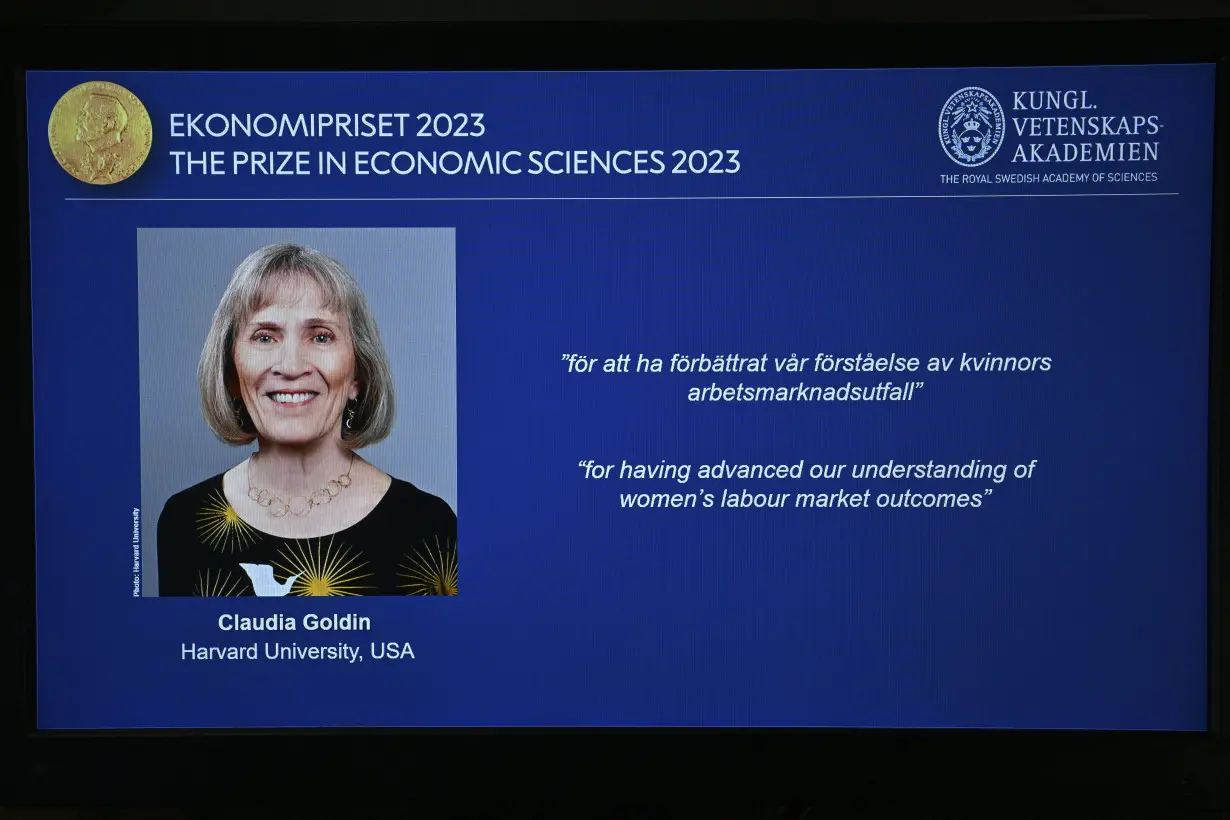
“Ways in which we can even things out or create more couple equity also leads to more gender equality,” said Goldin, who often works with her Harvard colleague and husband, Lawrence Katz.
Goldin noted another barrier for women: Most children get out of school sometime in the middle of the afternoon.
“Very few of us have jobs that finish at 3 o’clock in the afternoon,’’ Goldin said. “So having extended school programs is also important, and those cost money.’’
Despite everything, she said: “I am an optimist. I’ve always been an optimist.″

___
Wiseman reported from Washington, Casey from Cambridge, Massachusetts. Associated Press journalist Mike Corder in The Hague, Netherlands, contributed to this report.
___
Follow all AP stories about the Nobel Prizes at https://apnews.com/hub/nobel-prizes

 Trump has begun another trade war. Here's a timeline of how we got here
Trump has begun another trade war. Here's a timeline of how we got here
 Canada's leader laments lost friendship with US in town that sheltered stranded Americans after 9/11
Canada's leader laments lost friendship with US in town that sheltered stranded Americans after 9/11
 Chinese EV giant BYD's fourth-quarter profit leaps 73%
Chinese EV giant BYD's fourth-quarter profit leaps 73%
 You're an American in another land? Prepare to talk about the why and how of Trump 2.0
You're an American in another land? Prepare to talk about the why and how of Trump 2.0
 Chalk talk: Star power, top teams and No. 5 seeds headline the women's March Madness Sweet 16
Chalk talk: Star power, top teams and No. 5 seeds headline the women's March Madness Sweet 16
 Purdue returns to Sweet 16 with 76-62 win over McNeese in March Madness
Purdue returns to Sweet 16 with 76-62 win over McNeese in March Madness
